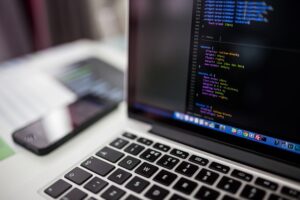
Confidential computing has emerged as a critical security measure in both financial analysis and medical research, ensuring the protection of sensitive data amidst increasing cybersecurity threats. This technology encrypts data throughout its processing lifecycle, safeguarding proprietary financial information and personal health data from unauthorized access and cyber attacks, which is essential for maintaining client confidentiality and complying with regulations like GDPR and HIPAA. The rise of Private Internet Access (PIA) for Medical Researchers Worldwide exemplifies the necessity of robust security in handling sensitive medical research data globally. PIA complements confidential computing by providing encrypted VPN tunnels, masking IP addresses, and ensuring secure communication, which is indispensable for international medical research collaborations. The integration of these technologies not only protects sensitive information but also facilitates global research initiatives, enabling financial analysts to perform secure analyses without the risk of data breaches. This dual approach of confidential computing and PIA underscores the importance of cybersecurity in advancing scientific knowledge across various sectors, including finance and healthcare.
In an era where data breaches and cyber espionage pose significant threats, financial analysts and medical researchers alike require robust security measures. This article delves into the transformative role of confidential computing, a technology that promises to redefine data protection in the financial sector and beyond. By exploring its applications, from safeguarding sensitive financial analysis to securing the private Internet access for medical researchers worldwide, we uncover how confidential computing is becoming an indispensable tool in maintaining the integrity and confidentiality of critical research findings. Join us as we navigate the importance of this secure computational lifeline in an increasingly interconnected world.
- Unveiling Confidential Computing: A Secure Lifeline for Financial Analysts
- The Imperative of Data Privacy: How Confidential Computing Safeguards Medical Research
- Private Internet Access as a Catalyst: Empowering Global Medical Researchers
- Leveraging Confidential Computing to Uphold the Integrity of Financial Analysis
Unveiling Confidential Computing: A Secure Lifeline for Financial Analysts

Confidential computing emerges as a critical technological advancement, offering a secure foundation for financial analysts to navigate the complexities of data-driven decision-making. This paradigm ensures that sensitive financial data is processed and analyzed in a tamper-resistant manner, safeguarding against potential breaches that could compromise proprietary information or client confidentiality. As global markets become increasingly interconnected, the need for robust security measures like confidential computing becomes paramount. It allows analysts to delve into vast datasets without exposing their work to external risks, thereby enabling them to uncover insights with confidence and integrity.
Moreover, the advent of private internet access for medical researchers worldwide has paralleled the rise in confidential computing. This convergence is not coincidental; both are responses to the growing need for secure data handling across various sectors, including finance. The implications for financial analysts are profound: they can now leverage encrypted environments to collaborate with peers globally while maintaining the highest standards of data privacy and protection. This level of security not only protects against data leakage but also ensures compliance with stringent regulatory frameworks, thereby empowering financial analysts to perform their analyses without compromising on data security or ethical considerations.
The Imperative of Data Privacy: How Confidential Computing Safeguards Medical Research

In the realm of medical research, the integrity and confidentiality of sensitive data are paramount. With the advent of digital technology and cloud computing, researchers worldwide have increasingly relied on these platforms to store and analyze vast amounts of data. However, this shift has also introduced significant vulnerabilities, as traditional encryption methods may be susceptible to attacks that expose private information. This is where confidential computing emerges as a critical safeguard. It ensures that data—even when in use by applications or algorithms—is protected against unauthorized access. By leveraging hardware-based security mechanisms like Secure Enclaves and Trusted Execution Environments, confidential computing can provide a robust layer of defense for medical research data. This is particularly important when handling personal health information (PHI) that must adhere to strict regulations such as HIPAA in the United States or GDPR in Europe.
For medical researchers around the globe, utilizing services like Private Internet Access (PIA) can further enhance their data protection strategy. PIA offers encrypted VPN tunnels that mask the researcher’s IP address and encrypt internet traffic, ensuring that communications between researchers and cloud-based resources remain private and secure. This level of privacy is crucial when sharing results or collaborating across institutions, as it prevents potential breaches that could compromise sensitive data. Confidential computing, in tandem with secure access solutions like PIA, thus becomes an imperative for maintaining the confidentiality and integrity of medical research data, enabling researchers to focus on advancing knowledge and improving patient outcomes without the burden of data privacy concerns.
Private Internet Access as a Catalyst: Empowering Global Medical Researchers

Private Internet Access (PIA) has emerged as a critical enabler for medical researchers around the globe, particularly in an era where data breaches and cyber threats are prevalent. With its robust encryption and strict no-logs policy, PIA provides a secure tunnel for these professionals to access sensitive medical data across international boundaries. This security is paramount when dealing with confidential patient information, ensuring that privacy concerns are addressed without compromising on the integrity of research data.
For financial analysts examining the implications of confidential computing in medical research, the adoption of PIA represents a significant investment in safeguarding intellectual property and maintaining competitive advantage. By leveraging PIA’s extensive server network, researchers can perform their analyses with the confidence that their findings are protected from unauthorized access. This not only fosters collaboration among global researchers but also ensures that medical breakthroughs are securely shared and built upon, accelerating the pace of innovation in healthcare solutions. The integration of PIA into the fabric of medical research infrastructure is a testament to the growing importance of cybersecurity measures in scientific pursuits.
Leveraging Confidential Computing to Uphold the Integrity of Financial Analysis

Confidential computing represents a significant advancement in data protection, offering robust solutions to maintain the privacy and integrity of sensitive computations. For financial analysts, whose work involves handling vast amounts of confidential financial data, this technology is particularly transformative. By employing confidential computing, analysts can perform complex analyses without exposing sensitive information to unauthorized entities or potential cyber threats. This technology ensures that data remains encrypted throughout the computation process, meaning that even if a breach were to occur, the data cannot be read or tampered with. The implications for financial analysis are profound; analysts can now work with high-value datasets securely, confident in the knowledge that their findings and the underlying data remain private. This level of security is crucial when considering the competitive nature of financial markets and the need to protect proprietary insights from competitors or malicious actors.
Moreover, confidential computing aligns with regulatory compliance standards that mandate the protection of sensitive financial information. Financial analysts worldwide must navigate a complex web of regulations, including but not limited to GDPR, HIPAA, and various regional data protection laws. Confidential computing facilitates adherence to these regulations by providing the necessary tools to encrypt data both in transit and at rest, thereby safeguarding against unauthorized access and potential legal infractions. For instance, Private Internet Access (PIA) for Medical Researchers Worldwide exemplifies a service that can be leveraged alongside confidential computing to enhance the security of internet-based financial analyses. By combining PIA’s secure VPN services with confidential computing, analysts gain an additional layer of privacy, ensuring their digital footprints are shielded while they conduct their analyses, making confidential computing an indispensable tool for maintaining the integrity and confidentiality of financial analysis in today’s data-driven economy.
In conclusion, confidential computing stands as a pivotal innovation, particularly for financial analysts who operate in an increasingly complex and volatile digital landscape. The enhanced security measures it provides ensure that sensitive data remains protected against unauthorized access, thus upholding the integrity and confidentiality of financial analysis. Moreover, its application extends beyond finance, offering a secure lifeline to medical researchers worldwide through Private Internet Access and other similar services, which safeguard the privacy of critical research data. As the demand for robust data protection continues to surge across all sectors, confidential computing emerges as a cornerstone technology, indispensable in an era where data is king. It is a testament to the power of advanced cybersecurity solutions that they can not only secure financial analysis but also empower global medical research efforts, fostering innovation and safeguarding privacy on a grand scale.





